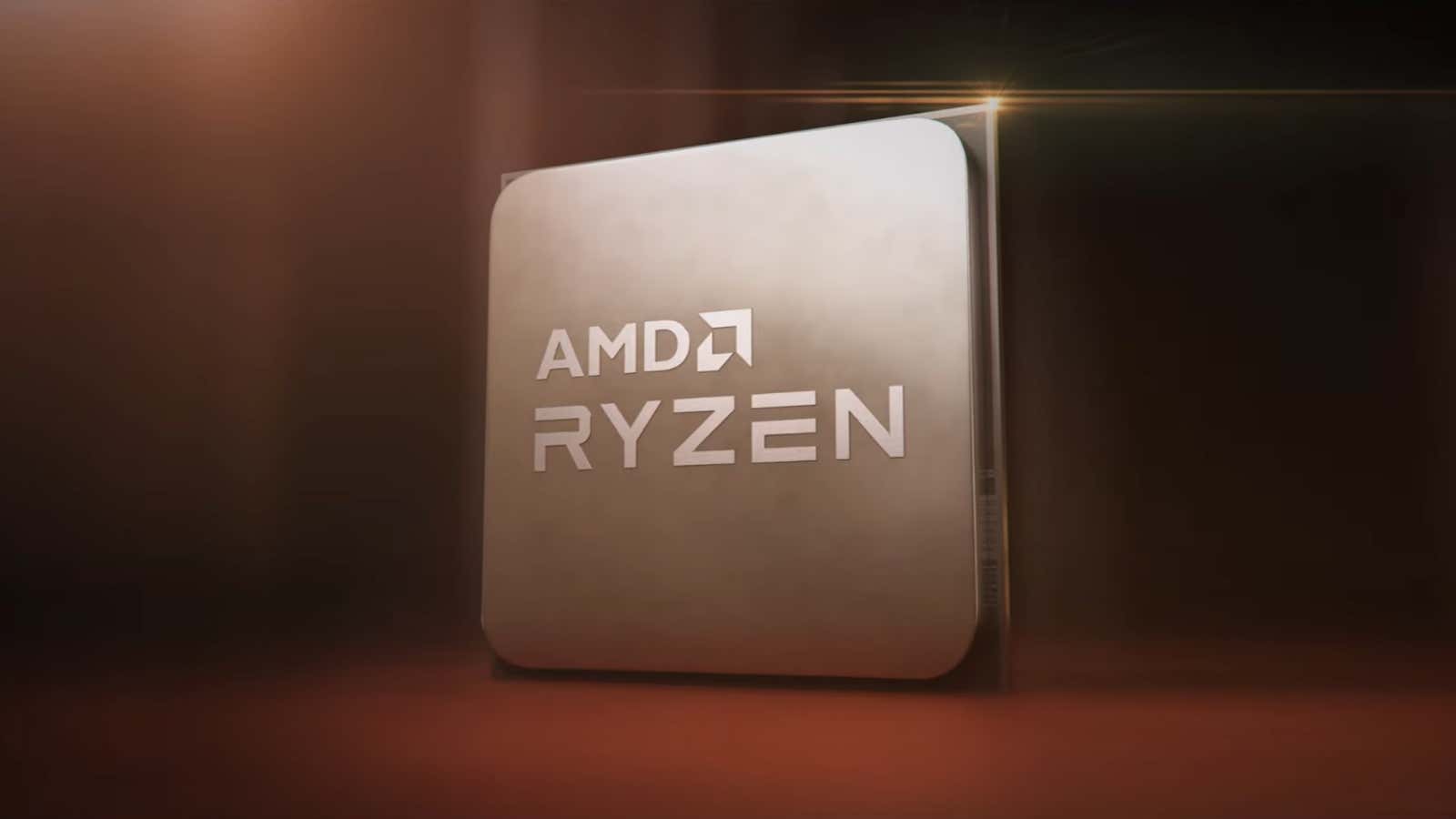Should You Upgrade to an AMD Zen 3 Ryzen Processor?

AMD officially announced its new Zen 3 Ryzen processors today and gave graphics-hungry gamers a little bit of a feel for what they can expect from the Big Navi release later this month. We pulled as much detail as possible from the AMD event. Here’s what you need to know if you want to update your system soon.
We’ll start with the graphics because there isn’t much to talk about here.
I love it when you call me Big Navi
Despite the frustration of all PC build fanatics, you can’t get your hands on Nvidia’s shiny new graphics card, I feel you. AMD is feeling you too – the company hopes you will try out its RX 6000 “Big Navi” graphics cards when they officially debut later this month.
The company couldn’t resist showing a bit of Big Navi in today’s processor announcements. The Radeon RX 6000 card preview topped 60fps in three demanding games – Borderlands 3, Call of Duty: Modern Warfare and Gears of War 5 – with their harshest graphics settings and 4K resolution. Not bad, but these are AMD benchmarks running on AMD hardware, so we’re going to be skeptical about them until reviewers get their hands on the cards.
It shouldn’t take long since AMD would be foolish to ignore graphics-hungry gamers right now. I bet there are quite a few people who are fed up with trying to beat the middleman bots for Nvidia’s RTX 3000 series cards and are willing to be influenced by AMD’s offerings, even if they end up not being as fast as Nvidia’s. (This is just speculation; we’ll find out more after AMD’s Big Navi presentation on October 28th.)
Let’s talk about CPUS: Zen 3 Ryzen Coming November 5
AMD’s event today was dedicated to the latest Zen 3 Ryzen processors, including what the company calls “the world’s best gaming processor.” Battle words, so let’s hunt for a second.
AMD claims its architectural changes for Zen 3 Ryzen increase the overall performance of its chips by 19% over Zen 2 chips. It breaks down the performance gains as follows:
AMD estimates its Zen 3 Ryzen processors are also 2.4 times more efficient in terms of performance per watt than the first generation Ryzen processors and about 24 percent more efficient than the second generation Ryzens. All four Zen 3 chips support DDR4-3200, but only one has its own cooler – the cheapest Ryzen 7 5600X chip. BYOC enthusiasts.
AMD has cited a host of other numbers to showcase the raw performance of its Zen 3 processors, claiming that they average about 25 percent faster for gaming than its latest enthusiast chip, the Zen 2 Ryzen 9 3900XT. But again, these are all AMD benchmarks.
As always, it is worth waiting for a less biased series of reviews to test AMD chips in a wide variety of gaming tests and real-world scenarios.
However, I’ve already seen reports that said AMD’s numbers, if accurate, would make its 5900X and 5950X chips the fastest possible for single-core performance. I’d still wait for reviews to try these chips, but its nearly 18% performance gain in the single-core CineBench benchmark over the best Zen 2 chips is no joke.
AMD Zen 3 Ryzen processors are coming November 5, and here’s the full lineup for you to buy:
- AMD Ryzen 9 5950X: $ 799 16/32 (Cores / Threads) 3.4GHz Base Frequency, 4.9GHz Boost Clock, 72MB Cache
- AMD Ryzen 9 5900X: $ 549 12/24 (Cores / Threads) 3.7GHz Base Frequency, 4.8GHz Boost Clock, 70MB Cache
- AMD Ryzen 7 5800X: $ 449 8/16 cores / threads, 3.8GHz base, 4.7GHz boost, 36MB cache
- AMD Ryzen 7 5600X: $ 299 6/12 cores / threads, 3.7GHz base, 4.6GHz boost, 35MB cache. Supplied with Wraith Stealth CPU cooler
You cannot pre-order any of these chips. And if you are observant, you will notice that you are paying $ 50 more for each chip than its Zen 2 equivalent. I suspect AMD Zen 3 chips will still beat Intel in terms of price / performance per dollar, but we will see how the statistics change when everyone has the opportunity to run multiple tests. And who knows what we’ll see when Intel unveils Rocket Lake chips early next year.
While you wait for Zen 3, make sure your AMD 500 series motherboard is updated to the latest BIOS available so that any updates you make work on launch day. AMD 400-series motherboards will also support Ryzen 5000 series chips, but beta BIOS versions for them are not expected to arrive until January at the earliest, with stable releases later in the next year, according to the schedule each motherboard manufacturer chooses. …